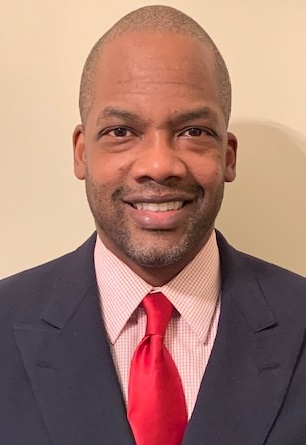NASHVILLE, Tenn. (TSU News Service) – Two Tennessee State University researchers have been named among the “1,000 Inspiring Black Scientists in America” by Cell Mentor.

Dr. Frances Williams, associate vice president of Research and Sponsored Programs and professor of electrical engineering; and Dr. Quincy Quick, associate professor of biology, were cited by Community of Scholars in its latest posting in Cell Mentors, a web resource that provides support and resources for emerging scientists.
Williams and Quick, acknowledged as top scientists in the nation, have extensive research, teaching and scientific backgrounds.
“It is an honor to be recognized as one of the ‘1000 Inspiring Black Scientists in America’ on Cell Mentor,” Williams said upon receiving news of her selection.
“I am humbled to be included with some of my STEM heroes and sheroes. I hope that students see the list and are able to envision themselves as the next generation of scientists and innovators that make a positive impact on our world.”
Williams is widely published, and holds a patent in the areas of advanced materials and devices, biosensors, and nano- and micro-electromechanical systems processing and devices. She has received grants totaling over $15 million as a principal investigator or co-principal investigator.

Quick, who investigates brain tumors and serves as scientific grant reviewer for several cancer journals in the nation, said it is a “humbling and grateful experience to be acknowledged for your work, along with your peers like Dr. Williams, as well as the other African American scientists” around the United States.
“The visibility from a minority standpoint is critical,” Quick said. “Often times our work at HBCUs is overlooked in comparison to other majority institutions. Acknowledging the breadth of all of the African Americans across all types of institutions is a critical exposure for everybody.”
In addition to research projects supported by federal state funding, Quick has mentored more than 80 students at the Ph.D., master’s and undergraduate levels, as well as a research mentor for several NSF and NIH training and developmental programs.
At TSU, students are also celebrating the selection of Williams and Quick as inspiring black scientists by Cell Mentor.
“It is no surprise that Dr. (Quincy) Quick would be recognized for an accomplishment such as this,” Mariel Liggin, a senior biology major from Louisville, Kentucky, said about her professor. “His dedication to science can be been in the classroom as well as in the lab. He is one of the reasons why I continue to pursue my major in biology.”
Of Dr. Williams, civil engineering graduate student Morgan Chatmon, congratulated her professor for the recognition.
“Dr. Williams is a dynamic leader, powerful motivator, and beneficial contributor to the STEM staff and student at TSU,” said Chatmon, of Omaha, Nebraska.
According to the Cell mentor, The Community of Scholars is “a group of Persons Excluded because of their Ethnicity or Race (PEER) composed of postdoctoral fellows, early-stage investigators, instructors, and consultants with a common passion to advance scientific discovery while innovating diversity, equity, and inclusion initiatives.”
To see the complete list, visit: https://crosstalk.cell.com/blog/1000-inspiring-black-scientists-in-america(link is external).
Department of Media Relations
Tennessee State University
3500 John Merritt Boulevard
Nashville, Tennessee 37209
615.963.5331
About Tennessee State UniversityFounded in 1912, Tennessee State University is Nashville’s only public university, and is a premier, historically black university and land-grant institution offering 39 bachelor’s degree programs, 24 master’s degree programs, and seven doctoral degrees. TSU is a comprehensive research intensive institution with a R-2 Carnegie designation, and has a graduate school on its downtown Avon Williams Campus, along with the Otis Floyd Nursery Research Center in McMinnville, Tennessee. With a commitment to excellence, Tennessee State University provides students with a quality education in a nurturing and innovative environment that prepares them as alumni to be global leaders in every facet of society. Visit the University online at tnstate.edu.
